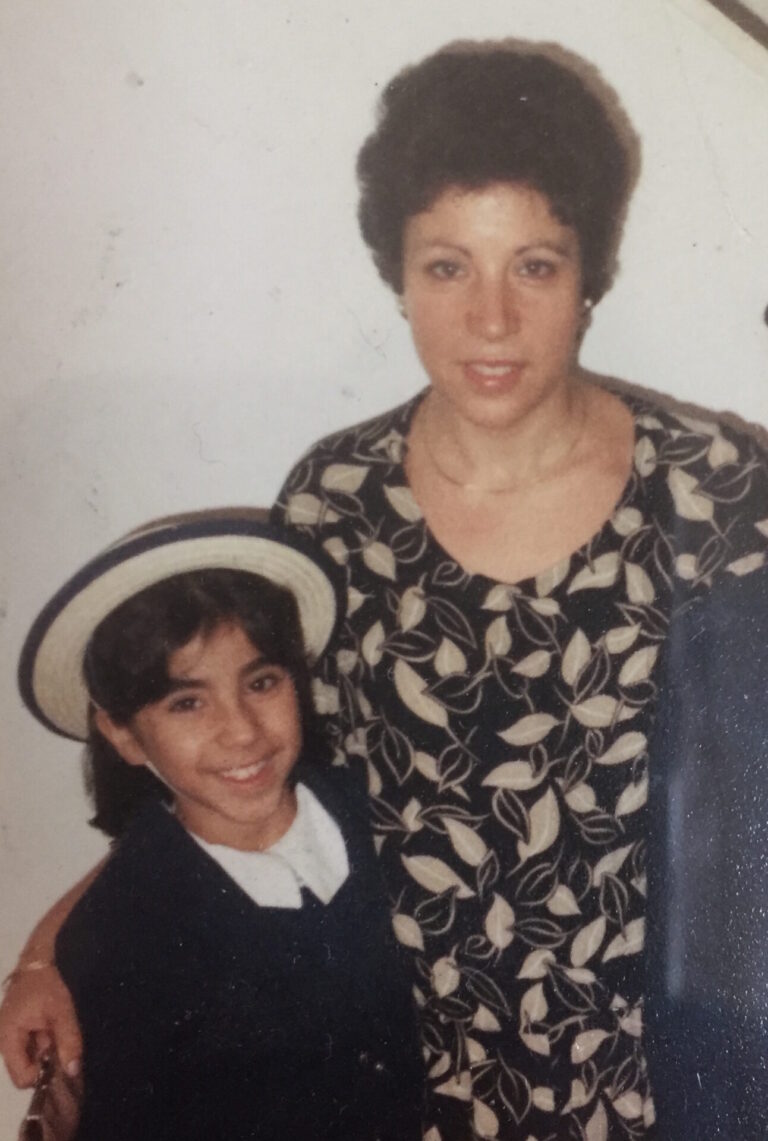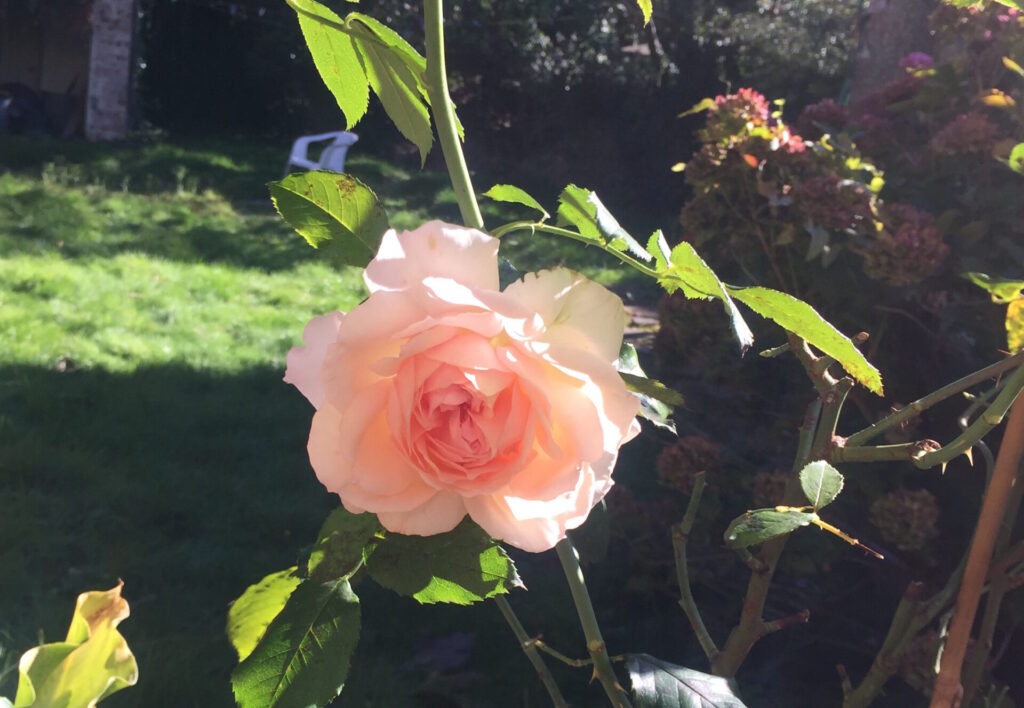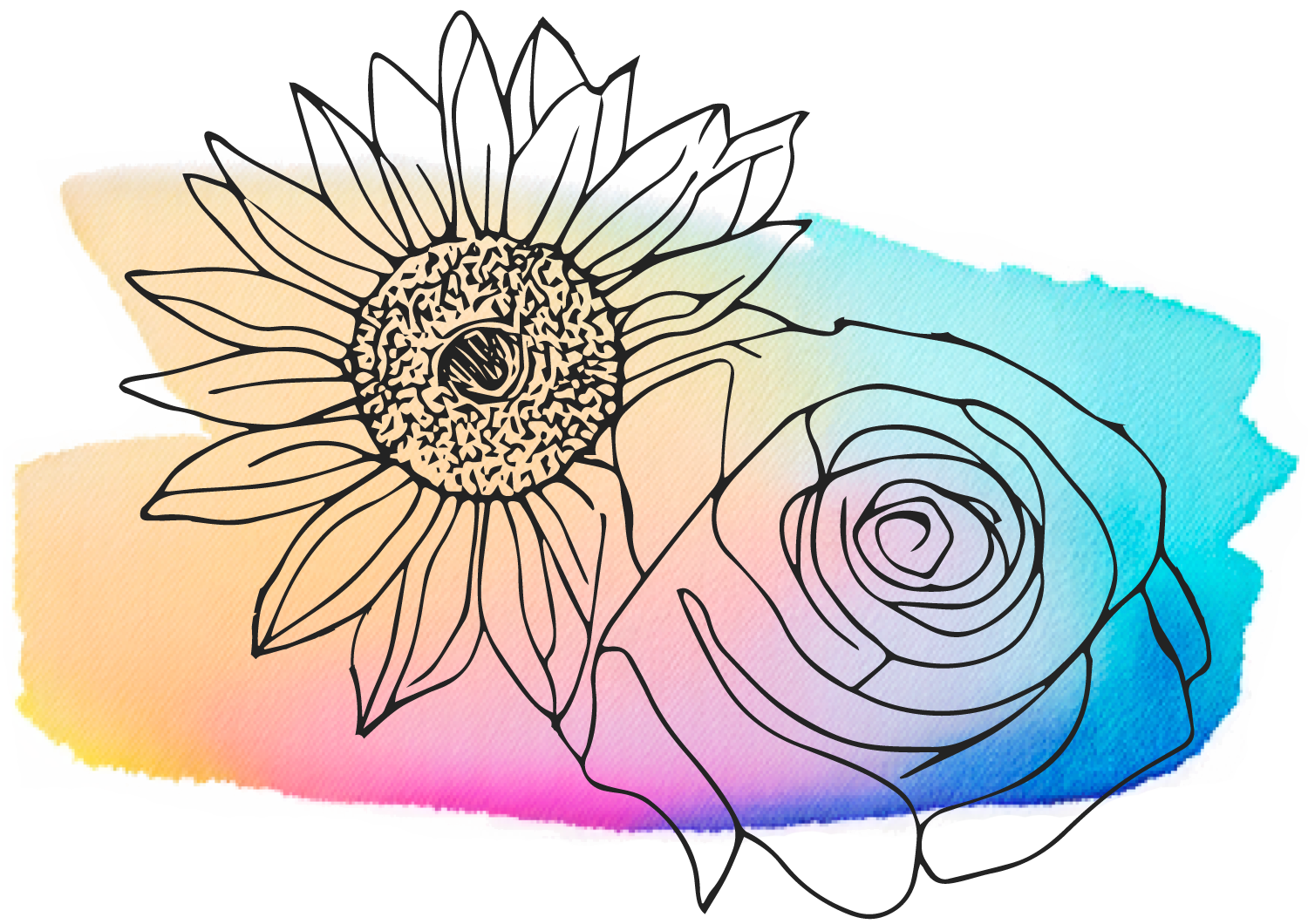My Story
7 minute read
Mum died just after her 42nd birthday and my 13th. Ten years later my father also passed , shortly followed by my grandparents. And so by the time of my mid 20s my immediate family had mostly dissolved.
I’ve started this project because it offers, or hopes to, what I needed myself when I was younger; a space where outsiderhood from normal family ideals is ok. And a space where the early loss of a mother or the loss of mothering is also ok, because it’s not actually uncommon, nor is it a thing of shame.
I didn’t need silence or pity after mum died early. I needed to know there were others who understood. I needed her loss to be recognised, shouted from the rooftops even, but not met with a veil of misfortune. I also needed a bit of womanly advice growing up without mum and an avenue for emotional authenticity. After they both died I needed somebody rooting for me well into my 20s and I needed a sense of an unconditional safety net.
Instead I was handed society’s fear of motherloss and parentloss, and so I was handed an identity of being unlucky and an imperative to hide and to protect myself.
What happened
My mum, Eleni, was beautiful inside and out. She was sweet-hearted. She carried a well of emotional depth and warmth about her. She was also mischievous and playful and she was clever. She’d always question the true reason behind things and would never take things at face value. She had integrity in everything she did, as a mother, as a teacher, as a friend, as a woman of faith. And she was glamorous, she loved to wear colour and she loved pink roses.
She’d had breast cancer two years prior and was supposed to be in remission. Nobody told me she was ill again, but when I realised something was wrong I thought she’d get better like she had before.

One morning I went to school. When I returned home she was gone. She had died at 1pm in the afternoon and we hadn’t said goodbye.
Afterwards she was never spoken of again – not at home nor with friends nor with relatives nor at school, never. When I returned to school after her funeral my teachers had told my classmates not to mention her; one London’s top performing girls grammar schools, it lacked the feminine wisdom to acknowledge the passing of a mother.
At home my father devoted himself heroically to the upkeep of the family, mostly by making enormous amounts of food and by keeping us safe. His love was shown through food, protection and routines. But neither he nor my grandparents could ever speak of mum, nor share their devastation or their grief because they didn’t know how. They believed they had to be ‘strong’ to move on.
The silence over mum’s death (and life) continued for the next decade until dad died, then it enveloped him too. One morning he wasn’t feeling well so we went to A&E. Three days later he died unexpectedly of multiple organ failure. Without warning in four days my devoted dad had gone as well. Then the same thing happened – his name was never again mentioned by anybody that knew him and no stories or memories of him were ever recalled. Like mum he had been wiped from the annals of history. My parents had become unmentionable because they were dead it seemed, and I was their muted daughter quietly representing their misfortune.
My role, it was then apparent, was to move on and show everyone how infallible I was in spite of it all.

My life after was defined by a relentless quest for adventure, travel and new experiences, so much so friends said that they were living vicariously through me. But as their lives began to expand and take root, mine went around in quite a lot of circles. Each time the doors to the things I really wanted would open, I found myself struggling to walk through them. I felt a constant imperative to retreat.
Societal recognition
Looking back the term ‘grief’ which we commonly ascribe to losing loved ones doesn’t begin to describe my experience because there were so many hurdles before I could even get to grief. There were core survival issues; issues of feeling unrooted, issues around trust and self-belief. Issues which are common to nearly all childhood ‘adversities’.
I also carried a lot of guilt. In my 30s I realised that, aged 13, I’d experienced mum’s death as an abandonment which I thought my fault – as though I had done something to cause it.
It’s a text book case some would say, of children self-blaming for an event not explained to them. But I realise now that so much of the guilt I carried was shaped by how her death was responded to collectively, not just at home. The blanket silencing around her passing from everyone handed me shame of a broken family and it reinforced my self-blame for the situation. The abandonment was a societal one too and it led to cycles of my own self-denial.
Mum’s death was an event not an identity, but the societal silencing around it handed me a requirement for inauthenticity and an imperative to hide, borne by the collective fear we hold around death and the loss of mothering, and the shame we dispense around ‘failed’ families and our inability to truly witness childhood disconnects.
We designate the ‘problem’ of motherloss or childhood adversity to be healed by therapists or by charities behind closed doors, but the experience is a chronic one and one which is societally shaped, so it can’t be healed behind closed doors when the world outside continues to shun it.
Then there were also other cultural norms which negatively influenced how I navigated life.
Messages born of individualism, which said I had to be strong and independent created compulsive self-reliance. The learning that I couldn’t expose my outsiderhood created periods of withdrawal an isolation. Messages which said that my life’s fulfilment was conditional upon my worth prescribed struggle and perfectionism and the perpetual delay of the things I wanted.
We all live in the current of these beliefs; that we have to compete for the things we want, that we’re not enough as we are, that there exist conditions around love and belonging. But for me, without a family safety net those mandates were magnified out of proportion.
There was no soothing or balancing of those social directives at home – so they were amplified to the point where I built enormous defences.
It’s so easy to pathologise the coping strategies young people build as a direct result of the childhood adversity; as if it were mum’s fault because she died, as if it were mine for being ‘sensitive’. As if it’s a disease caused by the ‘misfortune’ of death (as if death were an adversity anyway when it’s a fate that befalls us all). But how young people adapt to life’s adversities doesn’t happen in a social vacuum. To label them as the direct impacts of an adversity totally skirts any collective responsibility for them.
Society didn’t create the disconnection from my family, but in its fear my situation and in its relentless forward trajectory, it pretended it didn’t see it.
The real tragedy is not that childhood losses or adversities happen. It’s that without recognition and repair young people grow up to be so fiercely defended they can’t then allow themselves to receive the things they need. The receipt of love and the freedom to trust life.
The real loss is the loss of faith unrestored. It’s that without repair the defensive behaviours we term as ‘maladaptive’ become so entrenched by adulthood, they can take a lifetime to dismantle; patterns of isolation or extreme behaviours or addictions, which aren’t in fact maladaptive – they’re perfectly adapted to messaging they’re exposed to which says that they’re unlucky and alone.
And yet the perfect nuclear family is becoming a thing of a past – it’s less sustainable in these fragmented times and broken systems. So called ‘broken families’ are becoming the norm. So when are we going to stop believing we’re unlucky and that everyone else has it so much better?
What I needed
If I had to surmise my experience, it was of fragmentation; it was severance of connection, to myself, as well as to the world around.
That can happen for young people in so many ways other than though the death of a mother or parent. It can happen when a child goes into care through a mother’s own trauma or inability to nourish their child. It can happen through illness, or poverty or through a father’s own struggles or inability to express affection, which may not even be intended.
Nor is it even about a mother necessarily, but rather the loss of what the Mother IS and represents. The Mother represents connectivity, unconditional love and belonging, abundance, receptivity, sweetness. To lose that is to lose our entitlement to enjoy life. It’s a wound of disconnection and separation from a greater whole, which to a degree everyone’s familiar with.
When I finally started tending to the separation I experienced, I found little glimpses of myself, fragments of my own nature I’d forgotten about; the school girl who would organise treasure hunts for her friends and make them giggle. The DJ’s best friend who could light up a dance floor. The people-lover who is curious and risk taking and unafraid.
That’s the transformational potential of this experience – a reconnection to our innate joy and potential. But it can’t be the responsibility of one mother alone to heal or a father or a therapist. Its a collective responsibility because we all play a huge role in shaping the identity kids build around the experience for themselves.
Young people need to know that they belong to a greater whole even though they haven’t got their mum or family around. They need to know that the answers aren’t outside of themselves, that they don’t have to grasp for things or abandon themselves to prove themselves worthy. That they have an entitlement to the things they want and a right to the life they want.
That message can only really come from those of us who have already walked that path and understand it.
And so this community project is meant for girls and their families that are experiencing the early loss of mothering, however it may have happened. And it’s intention is to connect them locally so they meet their peers and know that they’re not alone, have fun, and get a bit of guidance from those of us with the ‘lived-experience’.
If I had any advice to give a young daughter or son without mothering, above all I would tell them that there’s strength in numbers –that they should seek their peers, that sharing their inner world with people who ‘get it’ isn’t something special, that it’s actually integral to their future because they will seek to repair that disconnection throughout their lives.
I don’t know why my mum died so young. I wish I knew more of her ways. I wonder what we would have been like as women together and who I’d have become had she lived. But sharing a bit of my own experience is already bringing reward because there’s power in it. And if shedding light on the experience is helpful to someone else, it would mean that the difficulties of navigating life without her and my family, wasn’t without meaning and purpose after all.

If you’re an adult motherless daughter anywhere, please consider sharing any insights, or reflections or even a photo. If you’re a younger daughter or son, or their father or guardian and you live around London join our community..
